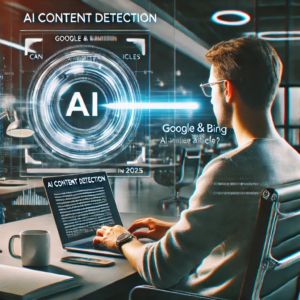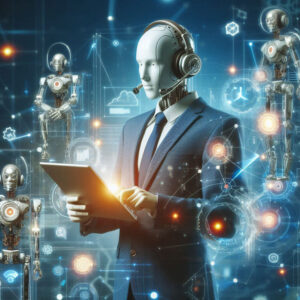How Future-Ready Software Engineers Master These 6 Tech Skills
Software engineering careers stand at a pivotal crossroads, where artificial intelligence tools reshape our daily workflows at breakneck speed. As a seasoned software engineer with experience spanning both Silicon Valley startups and established tech giants, I’ve witnessed firsthand how the landscape of essential technical skills continues to evolve. The emergence of AI-powered development tools has sparked intense debates about the future of our profession, but I’ve discovered that success in 2025 and beyond requires mastering a specific set of technical competencies that go far beyond simply leveraging AI assistants.
We strongly recommend that you check out our guide on how to take advantage of AI in today’s passive income economy.
Table of Contents
The Evolution of Software Engineering
The software engineering landscape has undergone a remarkable transformation in recent years. The days of writing isolated applications that run on single machines are long behind us. Today’s software engineers must navigate an intricate web of distributed systems, cloud services, and interconnected technologies. This evolution has created new challenges and opportunities, demanding a more sophisticated skill set from modern developers. The rapid advancement of technology has not only changed how we build software but has also redefined what it means to be a competent software engineer in today’s digital ecosystem.
Mastering Distributed Systems
The cornerstone of modern software engineering lies in understanding distributed systems. These complex architectures form the backbone of every significant application we interact with daily. From social media platforms handling millions of concurrent users to e-commerce systems processing thousands of transactions per second, distributed systems are everywhere. The ability to design, implement, and maintain these systems has become non-negotiable for software engineers aiming to stay relevant in 2025 and beyond.
Understanding distributed systems involves mastering concepts like eventual consistency, partition tolerance, and fault tolerance. These principles ensure our applications remain reliable and performant even when individual components fail. Cloud platforms like AWS, Azure, and Google Cloud have made distributed computing more accessible, but they’ve also raised the bar for what employers expect from software engineers. We must understand not just how to use these services, but also the underlying principles that make them work.
The Data Engineering Revolution
Data engineering has emerged as a crucial skill that bridges the gap between raw information and actionable insights. As organizations accumulate massive amounts of data, the ability to design and maintain robust data pipelines has become invaluable. Modern applications require real-time data processing, efficient storage solutions, and scalable architectures that can handle growing data volumes without compromising performance.
The role of data engineering extends beyond traditional database management. It encompasses building ETL pipelines, implementing data lakes, and creating streaming solutions that can process information in real-time. These skills are particularly crucial as companies increasingly rely on data-driven decision-making and personalized user experiences. Understanding how to work with technologies like Apache Kafka, Spark, and modern data warehousing solutions has become essential for software engineers looking to add value to their organizations.
Core Competencies for Modern Software Engineers
Fundamental Programming Excellence
Despite the rise of AI-powered coding assistants, strong programming fundamentals remain irreplaceable. The ability to write clean, efficient, and maintainable code sets exceptional engineers apart from average ones. This includes understanding data structures, algorithms, and design patterns at a deep level. When AI generates code, it’s our understanding of these fundamentals that allows us to evaluate, modify, and improve upon the generated solutions.
Programming fundamentals also include mastering version control systems, understanding code optimization, and writing comprehensive tests. These skills become even more critical as codebases grow larger and more complex. The ability to debug efficiently, refactor code effectively, and maintain clean architecture are skills that AI tools currently can’t replicate fully.
Machine Learning Integration
Machine learning has transformed from a specialized field into a mainstream requirement for many software engineering roles. Understanding how to integrate machine learning models into production systems, handle model deployment, and maintain ML pipelines has become increasingly important. This doesn’t mean every software engineer needs to be a machine learning expert, but having a solid foundation in ML concepts and practical implementation is invaluable.
The integration of machine learning into software systems presents unique challenges. Engineers must understand how to handle model versioning, manage training data, and ensure model performance in production environments. This includes working with frameworks like TensorFlow or PyTorch, understanding model serving architectures, and implementing monitoring solutions for ML systems.
Modern Development Tools and Practices
Leveraging AI-Powered Development Tools
While AI itself isn’t a standalone skill, mastering AI-powered development tools has become essential. These tools can significantly boost productivity when used effectively. Understanding how to prompt AI coding assistants, validate their output, and integrate their suggestions into your workflow is becoming as important as knowing your primary programming language.
The key lies in using these tools as enhancers rather than replacements for human expertise. They excel at tasks like code completion, documentation generation, and basic debugging, but they require human oversight and direction. Learning to collaborate effectively with AI tools while maintaining code quality and security is a skill that will become increasingly valuable.
Security-First Development
In an era of increasing cyber threats, security has become a fundamental aspect of software engineering. Understanding security principles, implementing secure coding practices, and maintaining robust security measures throughout the development lifecycle is crucial. This includes knowledge of encryption, authentication mechanisms, and common vulnerability patterns.
The rise of AI has introduced new security challenges, from protecting training data to preventing model exploitation. Software engineers must stay updated on the latest security threats and best practices, especially as attackers become more sophisticated in their approaches. Understanding compliance requirements, implementing secure APIs, and maintaining proper access controls are essential skills for modern software engineers.
Future-Proofing Your Software Engineering Career
The landscape of software engineering continues to evolve rapidly, but certain fundamentals remain constant. Success in 2025 and beyond requires a combination of technical expertise, adaptability, and continuous learning. While AI tools will continue to automate certain aspects of software development, the need for engineers who can architect complex systems, solve challenging problems, and ensure security and reliability will only grow.
Understanding these six core skills – distributed systems, data engineering, programming fundamentals, machine learning, modern development tools, and security – provides a solid foundation for a successful software engineering career. These skills complement each other and create a comprehensive toolkit that will remain valuable regardless of how technology evolves.
The future belongs to engineers who can combine these technical skills with critical thinking and creativity. As we move forward, the ability to adapt and learn will become even more crucial. By mastering these core competencies, software engineers can position themselves for success in an increasingly complex and dynamic technological landscape.
Remember, the goal isn’t to become an expert in every area but to develop a strong foundation in each of these skills while potentially specializing in one or two areas that align with your interests and career goals. The software engineering profession will continue to evolve, but these fundamental skills will remain valuable well into the future.

We strongly recommend that you check out our guide on how to take advantage of AI in today’s passive income economy.




